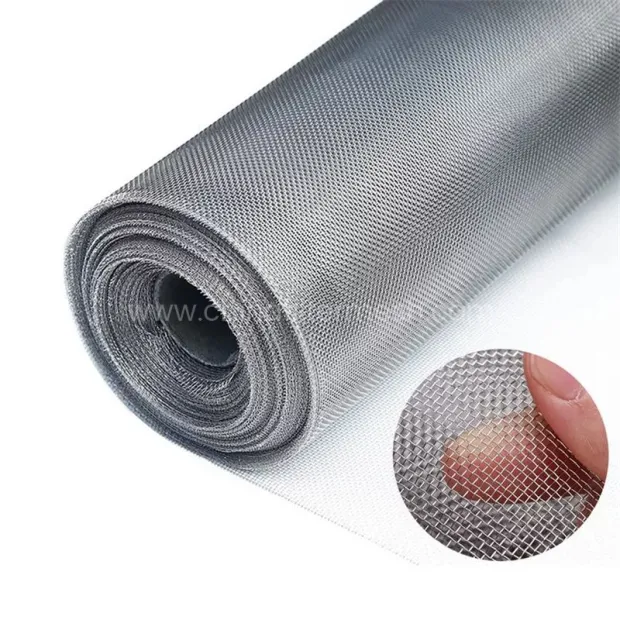Your Position: Home - Other Wire Mesh - The Ultimate Guide To Filter Wire Mesh
Filter wire mesh is essential in numerous sectors, including water treatment, pharmaceuticals, and beyond. Selecting the appropriate type of mesh not only guarantees effective filtration but also means considering critical factors such as material, size, and durability. This comprehensive guide tackles the common difficulties encountered by users and offers practical solutions for enhancing the performance of mesh in various applications.
Woven wire mesh is created by interlacing metal wires to form a grid structure. The accurate pore openings of this mesh make it particularly suited for filtering out particles from both liquids and gases, serving industries such as food processing and chemical manufacturing effectively.
Knitted wire mesh stands out due to its flexibility and consistent structure, proving useful for gas filtration and situations that demand uniform pressure distribution.
An excellent choice for high-stress applications, sintered mesh is produced by bonding metal layers through heat treatment. This type of mesh delivers remarkable durability and resilience, making it ideal for use in oil and gas filtration where extreme conditions are common.
A prevalent issue in filter wire mesh usage is ensuring the mesh effectively captures the intended particle size. To overcome this challenge, it’s crucial to select the right mesh count. Finer meshes may be more effective against small particles but can inadvertently impede flow rates. Finding the right balance between particle size and operational efficiency is essential.
Filter wire mesh often faces harsh temperatures, pressures, and chemical environments. Employing materials such as stainless steel or specialized alloys like Hastelloy and Inconel can significantly help resist corrosion and maintain structural integrity. It’s vital to confirm that the mesh material remains chemically compatible with the substances being filtered, especially in extreme environments.
Clogging and challenging maintenance tasks can hinder the performance of wire mesh filters. To combat this, choose wire meshes that include anti-fouling features or opt for designs that facilitate easy disassembly and cleaning. Regular cleaning with a soft brush and mild detergent can help restore function without damaging the mesh.

Several key factors should be considered when selecting filter mesh:
Material: Opt for corrosion-resistant materials such as stainless steel to ensure durability over time.
Mesh Size: It’s essential to choose a mesh size that aligns with the particle size you intend to filter.
Durability: In high-pressure or high-temperature settings, consider using sintered or welded mesh for enhanced strength.
Cost: Evaluate the need for custom designs against your budget; typically, larger orders can lead to reduced costs.
To achieve optimal performance from your filter wire mesh, conducting regular maintenance, selecting the appropriate mesh sizes and materials, and considering operating conditions are vital. Recognizing the limitations of different mesh types can contribute to avoiding problems like system overloads or excessive pressure drops.
Filter wire mesh serves as a versatile solution to various filtration challenges across multiple industries. By carefully selecting the right type, addressing prevalent issues, and committing to regular maintenance, you can enhance both the efficiency and longevity of your filtration systems. Whether dealing with liquid, gas, or high-pressure applications, choosing the correct wire mesh is crucial for ensuring product quality and operational efficacy.
67
0
0
Comments
All Comments (0)